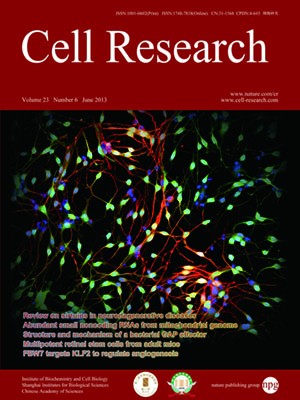
Volume 23, No 6, Jun 2013
ISSN: 1001-0602
EISSN: 1748-7838 2018
impact factor 17.848*
(Clarivate Analytics, 2019)
Volume 23 Issue 6, June 2013: 746-758
REVIEWS
Sirtuin deacetylases in neurodegenerative diseases of aging
Adrianna Z Herskovits1,2 and Leonard Guarente2
1Department of Pathology, Brigham and Women's Hospital, 75 Francis St., Boston, MA 02115, USA
2Department of Biology, Massachusetts Institute of Technology, 77 Massachusetts Avenue, 68-280 Cambridge, MA 02139, USA
Correspondence: Leonard Guarente, Tel: +1-617-800-9279; +1-617-258-7360(leng@MIT.EDU)
Sirtuin enzymes are a family of highly conserved protein deacetylases that depend on nicotinamide adenine dinucleotide (NAD+) for their activity. There are seven sirtuins in mammals and these proteins have been linked with caloric restriction and aging by modulating energy metabolism, genomic stability and stress resistance. Sirtuin enzymes are potential therapeutic targets in a variety of human diseases including cancer, diabetes, inflammatory disorders and neurodegenerative disease. Modulation of sirtuin activity has been shown to impact the course of several aggregate-forming neurodegenerative disorders including Alzheimer's disease, Parkinson's disease, Huntington's disease, amyotrophic lateral sclerosis and spinal and bulbar muscular atrophy. Sirtuins can influence the progression of neurodegenerative disorders by modulating transcription factor activity and directly deacetylating proteotoxic species. Here, we describe sirtuin protein targets in several aggregate-forming neurodegenerative diseases and discuss the therapeutic potential of compounds that modulate sirtuin activity in these disorders.
10.1038/cr.2013.70
FULL TEXT | PDF
Browse 2381


